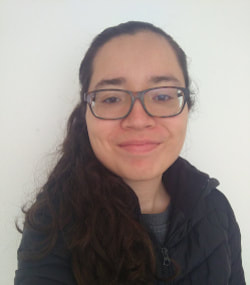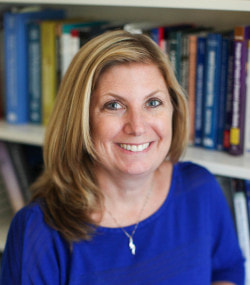Ramos Carranza is also part of Chancellor's Professor Emerita Deborah Vandell and Simpkins's Mott project, in which she is part of a team reviewing the literature on after-school programs, working with low-income, ethnic-minority youth. Ramos Carranza is specializing in Human Development in Context (HDiC). Simpkins serves as her advisor.
Simpkins is a developmental psychologist, studying child and adolescent development. She researches how families, friendships, and social position factors (such as ethnicity and culture) shape adolescents’ organized after-school activities and motivation. She is currently working on research focused on the positive outcomes of youth’s participation in activities as well as the predictors and correlates of high school students’ STEM motivational beliefs. She is co-PI on grants from the John Templeton Foundation and the Charles Stewart Mott Foundation that study how organized after-school activities support positive development from childhood through young adulthood. Simpkins directs the Center for After School and Summer Excellence (CASE) and Project REACH and co-directs the After School Activities Project. Abstract Although previous literature indicates that parents and siblings each provide key support for Latinx adolescents’ academic success, most studies have not considered how parents and siblings work as a system to support adolescents in science. Informed by theories on family systems and family influence on youth’s achievement and education, this study aimed to (a) identify what Latinx adolescents believed were the most helpful ways that parents and siblings supported them in science, and (b) explore whether family science support varied based on parents’ science education. Using a qualitative approach, semi-structured interviews from 90 Latinx adolescents (mean age = 15.54 years; 38% girls; 84% born in the U.S.) were analyzed using inductive and deductive approaches. We found that parents and siblings supported Latinx adolescents in science through various home-based strategies: active engagement (classwork help and monitoring), academic socialization (encouragement, conversations about the future, and advice) and providing resources (material and social resources). Adolescents mentioned their older siblings were particularly helpful in providing class-specific support based on the science classes that they had previously taken. Additionally, our findings suggest that siblings relied more on classwork help from only older siblings in families where parents did not take any high school science classes compared to families where parents took some high school science classes. Overall, this study highlights the complementary science support that parents and siblings provide Latinx adolescents and the valuable role that siblings can play in Latinx families when parents have limited science education. Comments are closed.
|
Resources for:
|
|



